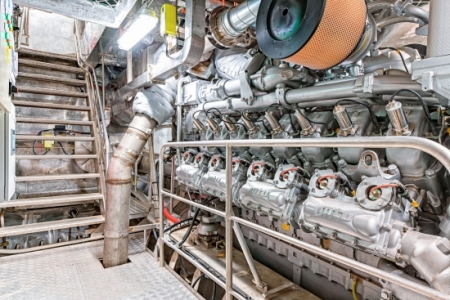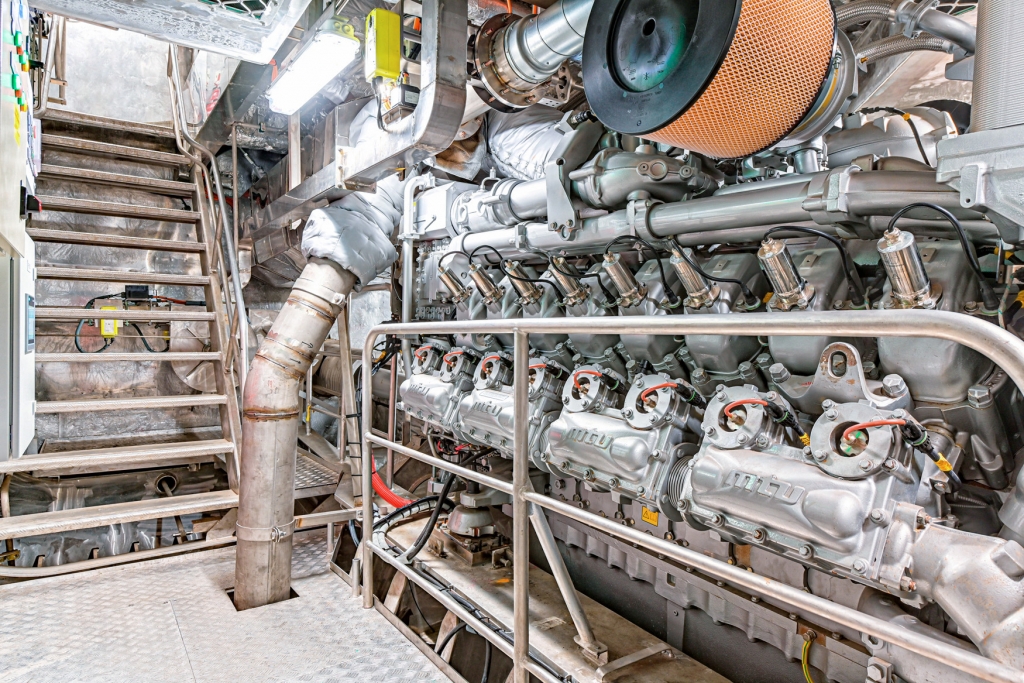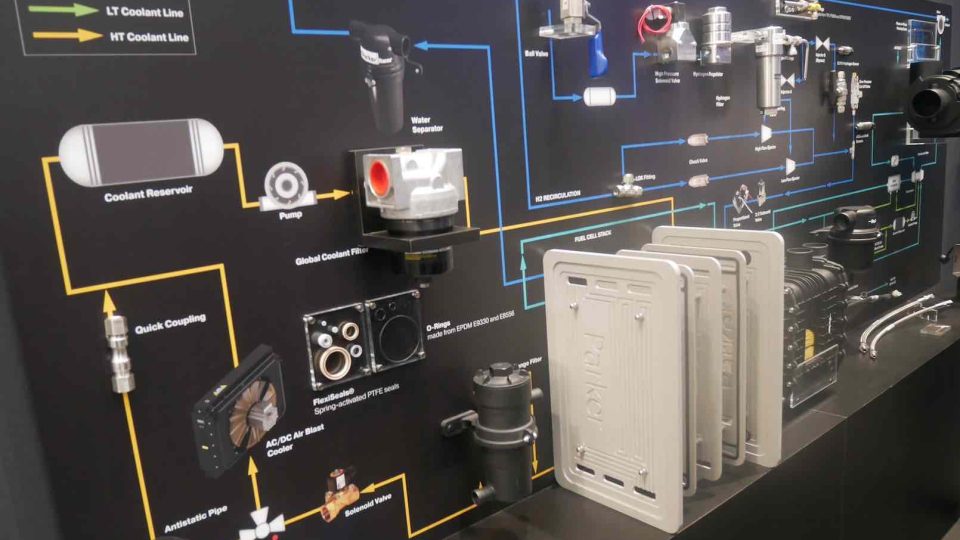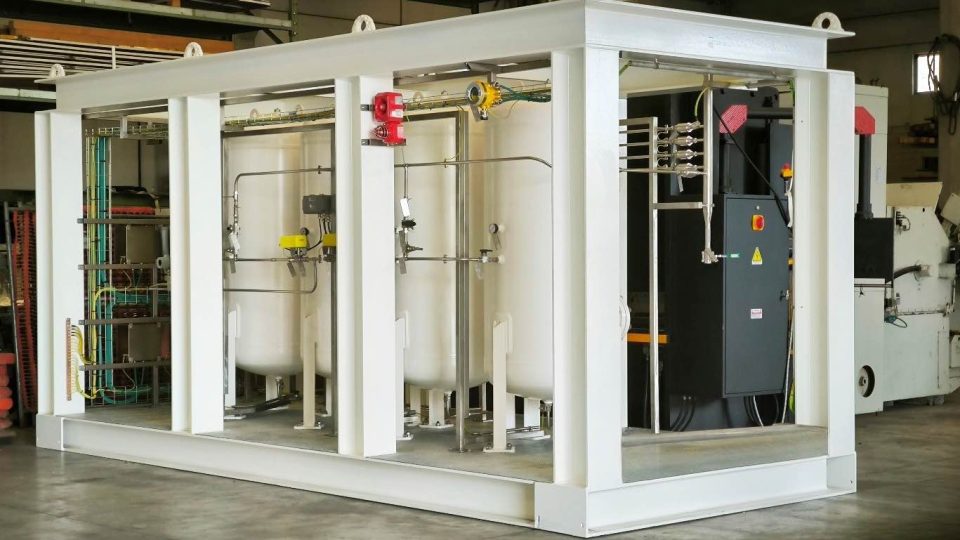MTU gas engines: 3,000 kW for Doeksen
MTU gas engines. MTU is a pioneer in the application of gas engines in the marine industry (and LNG as well), as demonstrated by the 4000 series. This is one of the strategies followed by Friedrichshafen, together with hybrid propulsion. Once again a ferry-boat, still in the Netherlands, still the 16-cylinder. MTU gas engines: the […]

MTU gas engines. MTU is a pioneer in the application of gas engines in the marine industry (and LNG as well), as demonstrated by the 4000 series. This is one of the strategies followed by Friedrichshafen, together with hybrid propulsion. Once again a ferry-boat, still in the Netherlands, still the 16-cylinder.

MTU gas engines: the ferry thinks smart
We leave it to them to take stock of the situation. Dutch shipping company Doeksen officially commissioned the Willem Barentz, the first of its two new 70-m ferries, on 1 July in Harlingen. The occasion also marked the premiere of the twin 16-cylinder MTU gas engines from Rolls-Royce aboard the ferry which together deliver some 3,000 kW for its ecologically clean operation on the Wadden Sea – a UNESCO World Heritage site. «I’m really impressed with the MTU gas engines. So far, they’ve met all our expectations in terms of performance, transient response behavior, smooth travel and low noise,» said Paul Melles, Managing Director of the Doeksen shipping company.
«We’re very proud that the Doeksen shipping company has chosen our new gas engines for eco-friendly operation of their ferries on the Wadden Sea, which is recognized as worthy of special environmental protection,» said Knut Müller, head of marine and governmental business at Rolls-Royce Power Systems. «Joining forces with them as our partner, we will be focusing our efforts on driving the energy turnaround.»
A pair of 746-kW, 8-cylinder versions of the gas engine were supplied to the City of Constance public utility at the end of 2019 for the new Lake Constance ferry, which is planned to be commissioned during the upcoming winter. Rolls-Royce originally unveiled its new MTU gas engines for marine propulsion in September 2016, shipping pre-series engines for Doeksen’s two new catamarans to the Strategic Marine shipyard in Vietnam in late 2017. «Rolls-Royce has developed the very first single-fuel gas engine that can drive a fixed propeller directly and is therefore capable of dynamic acceleration. That was the advantage that really made the difference for us,» explained Paul Melles.
From its headquarters in the city of Harlingen, the Doeksen shipping company operates ferry services to the West Frisian islands of Terschelling and Vlieland. Following the Willem Barentsz, its sister ferry, the Willem de Vlamingh, will be added in September to the fleet, which will then count 8 vessels in total. The two new arrivals will each have the capacity to transport up to 600 passengers and 64 cars across the Wadden Sea.
The main propulsion systems of the two new catamarans comprise twin MTU high-speed 16-cylinder Series 4000 gas units delivering 1,492 kW. Directly driving the Azimuth fixed propellers, the engines enable the vessels to reach cruising speeds of 14 knots. Emissions from the MTU gas engines fall considerably below the current IMO III limits without the need for exhaust aftertreatment – with particle mass, for example, lying under the detection threshold. Furthermore, the engine emits no sulfur oxides and only very small quantities of nitrogen oxide.
The new gas engine is particularly suitable for tugboats, ferries, cargo vessels and special vessels such as research ships. From the very beginning of its development, the focus was on fuel consumption, emissions, safety and acceleration. The gas units are furthermore equipped with multipoint fuel injection, dynamic engine control and enhanced turbo-charging. Multipoint fuel injection caters for dynamic acceleration capabilities, high power output and reduced emissions. By controlling the combustion process, it also offers the advantage of higher fuel efficiency. Since the gas system has double walls, the engine room can still be laid out more or less as for diesel-based propulsion. The new gas engine is part of Rolls-Royce’s Green and High-Tech program agenda. Here the company is consciously investing in the environment-friendly solutions of the future that will enable lower pollutant emissions and lower consumption of energy and raw materials. In the Green and High-Tech program, Rolls-Royce is placing the emphasis on efficiency enhancement, alternative fuels, electrification, digitalization and system integration with the ultimate aim of being able to supply complete drive, propulsion, and energy supply solutions.









